20 Foods You Won’t Believe Are Actually Healthy
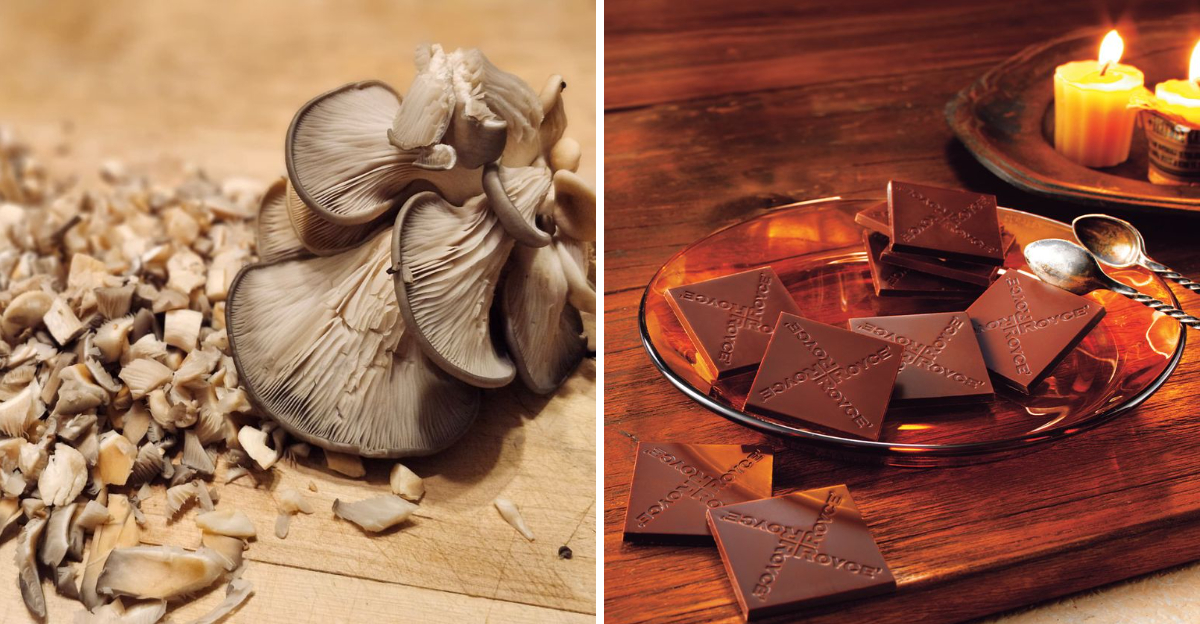
When it comes to healthy eating, most people think of salads and green juices. Yet, there are numerous foods that seem indulgent but are actually packed with nutrients. These foods might surprise you, as they break the norms of what is traditionally considered ‘healthy.’ Let’s explore 20 surprising foods that not only taste great but also offer significant health benefits.
1. Dark Chocolate

Dark chocolate, especially varieties with 70% cocoa or more, is rich in antioxidants. These compounds, known as flavonoids, can improve heart health by lowering blood pressure and enhancing blood flow. Indulging in a small piece can also boost your mood by increasing serotonin levels, making it a sweet, healthy treat. Enjoying dark chocolate in moderation can satisfy your sweet tooth while offering health benefits. Pair it with fruits like strawberries or oranges for an added flavor and nutrient boost.
2. Avocado

Avocados are a creamy, delicious fruit that’s loaded with healthy fats. These monounsaturated fats are heart-healthy and can reduce inflammation in the body. Additionally, avocados are high in fiber, which aids in digestion and keeps you feeling full longer. They also contain more potassium than bananas, which helps regulate blood pressure. Add avocados to your salads, toast, or smoothies for a nutrient-dense addition to your meals. Their versatility makes them a favorite among health enthusiasts.
3. Popcorn
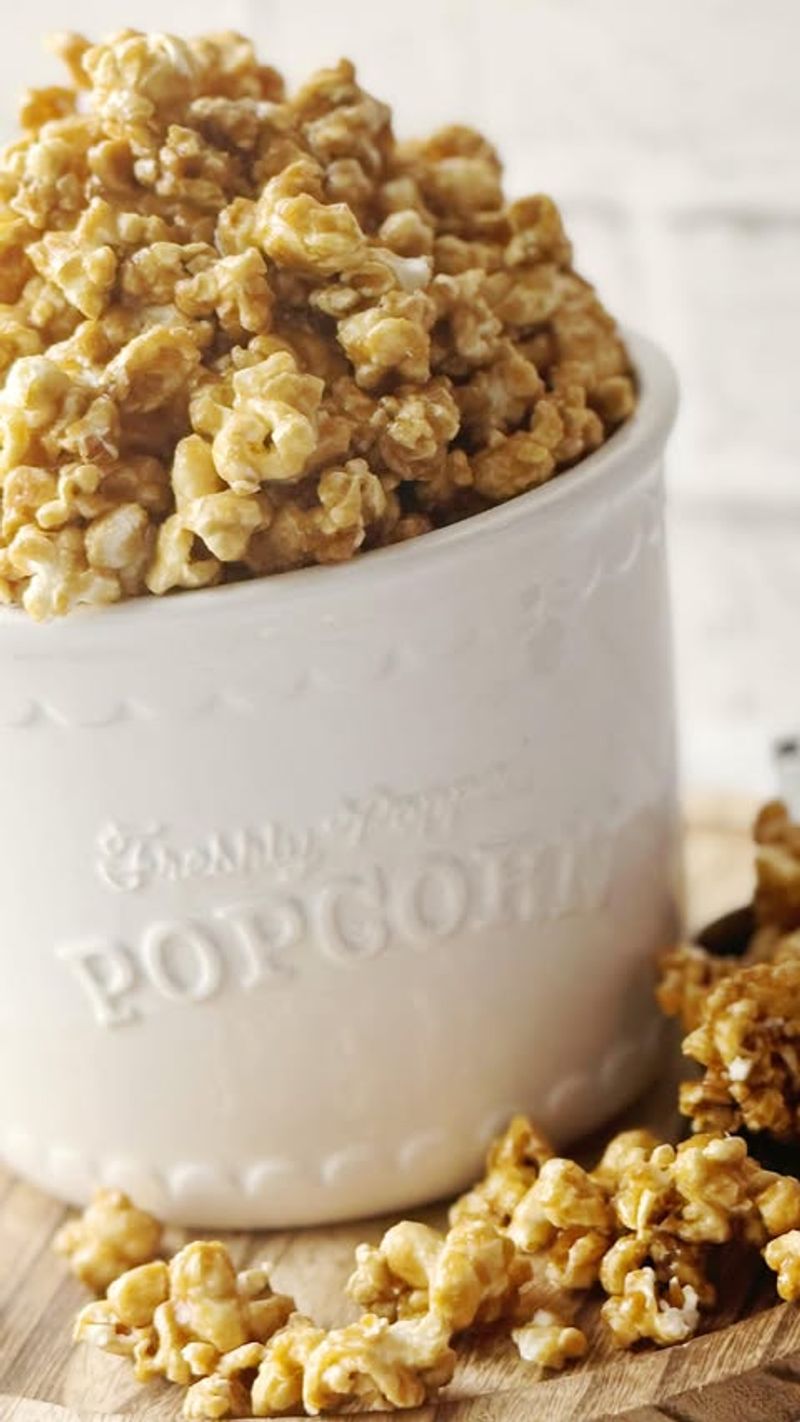
When prepared without loads of butter and salt, popcorn is a surprisingly healthy snack. It’s a whole grain, which means it’s high in fiber and can help keep you full between meals. Popcorn is also low in calories, making it a great choice for those watching their waistline. Instead of butter, try seasoning it with herbs or nutritional yeast for a cheesy flavor without the calories. This crunchy snack is perfect for movie nights or a light afternoon munch.
4. Peanut Butter
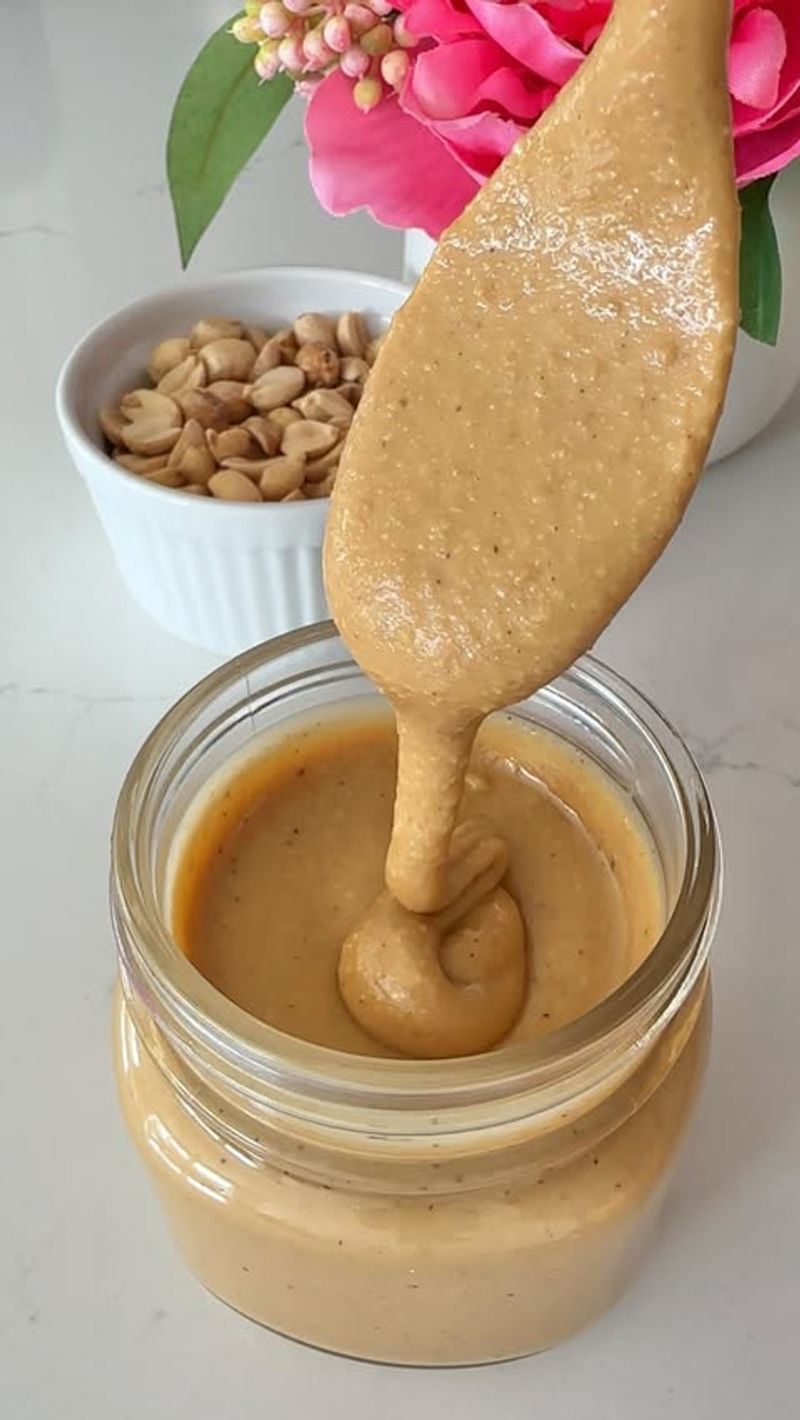
Peanut butter, when consumed in moderation, is a fantastic source of protein and healthy fats. It is rich in heart-healthy monounsaturated fats, which can help lower cholesterol levels. Peanut butter also provides a good amount of vitamins and minerals, including vitamin E and magnesium. Opt for natural, unsweetened varieties to avoid added sugars and trans fats. Spread it on whole-grain bread or mix it into smoothies for a delicious and nutritious treat. Just remember, a little goes a long way!
5. Eggs

Eggs are one of the most nutritious foods available, providing high-quality protein and essential nutrients. They contain all nine essential amino acids, making them a complete protein source. Additionally, eggs are rich in choline, vital for brain health. Despite past concerns about cholesterol, moderate consumption of eggs can actually support heart health. Enjoy them boiled, poached, or scrambled for a versatile meal option. Their versatility makes them a staple in many diets globally.
6. Coffee

Coffee, when consumed in moderation, is packed with antioxidants and can provide several health benefits. It can enhance cognitive function and improve mood, thanks to its caffeine content. Moreover, coffee drinkers have a lower risk of several serious diseases like type 2 diabetes. To maximize health benefits, enjoy your coffee without excessive sugar or cream. Explore various brewing methods like espresso or French press to enjoy its rich flavors. A morning cup can indeed kickstart your day in a healthy way.
7. Potatoes

Potatoes often get a bad rap, but they’re actually packed with nutrients. They are a great source of vitamin C, potassium, and fiber, especially when eaten with the skin on. Despite being starchy, they have a low calorie density, making them filling without being calorie-heavy. Baked or boiled, they can be a healthy addition to your diet. Just be cautious with the toppings; prefer healthy options like Greek yogurt or herbs. With their versatility, potatoes can be enjoyed in numerous dishes.
8. Coconut Oil

Coconut oil has gained popularity due to its unique fat composition. It contains medium-chain triglycerides (MCTs), which are metabolized differently from other fats, offering a quick energy source. Some studies suggest coconut oil can aid weight loss and improve cholesterol levels. While it’s high in saturated fat, using it sparingly in cooking can be beneficial. Opt for virgin coconut oil to ensure you’re getting the best quality. Its mild, sweet flavor is excellent for baking or adding to smoothies.
9. Cheese

Cheese, though often criticized for its fat content, can be a nutritious part of your diet. It’s a great source of calcium, protein, and several B vitamins. Cheese also contains conjugated linoleic acid (CLA), which has been linked to various health benefits. Consuming cheese can support bone health and provide essential nutrients. Choose aged cheeses like cheddar or gouda for rich flavors and nutritional benefits. Enjoy it in moderation, paired with fruits or whole-grain crackers.
10. Sardines

Sardines are tiny but mighty when it comes to nutrition. They’re packed with omega-3 fatty acids, which support heart and brain health. These fish are also rich in protein and contain high amounts of calcium and vitamin D, promoting strong bones. Sardines are low in mercury compared to other fish, making them a safe choice. Add them to salads, or pasta, or enjoy them straight from the can for a nutrient-dense snack. Their savory flavor is perfect for adventurous eaters.
11. Beef Jerky

Beef jerky, often seen as a convenience snack, is surprisingly nutritious when chosen carefully. It’s a great source of protein and iron, which support muscle and blood health. Look for jerky without added sugars or preservatives to maximize health benefits. It’s also low in fat, making it a filling and satisfying snack. Ideal for on-the-go fuel, beef jerky can fit into a balanced diet. Pair it with nuts or dried fruits for a well-rounded snack. Its portability makes it a favorite among travelers.
12. Olives
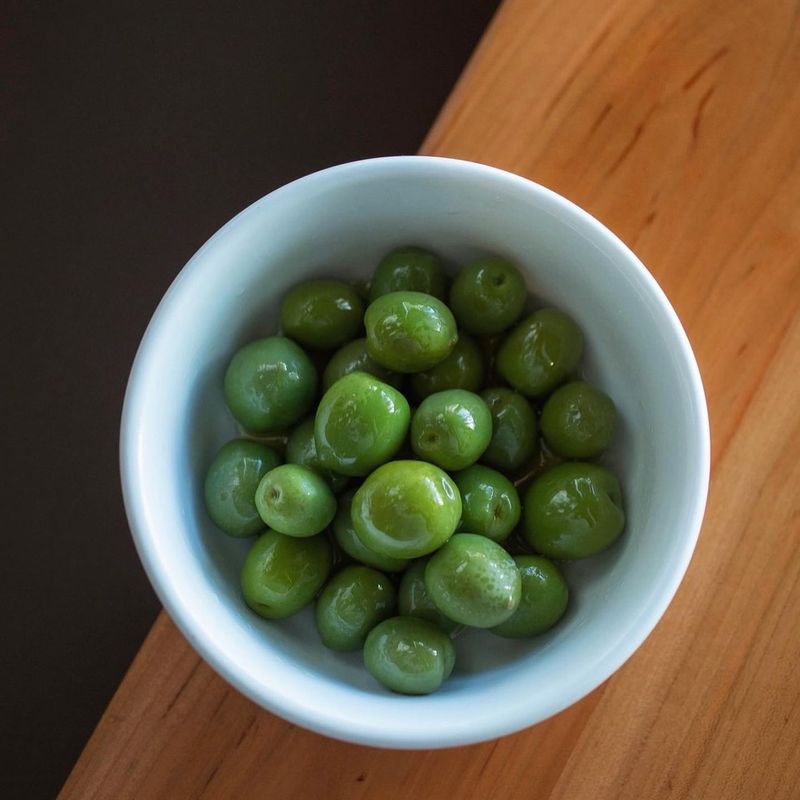
Olives are a tasty snack that offers numerous health benefits. They are high in monounsaturated fats, which are heart-healthy and can help reduce cholesterol levels. Olives also provide important antioxidants that protect against cell damage. Their consumption is linked to improved heart health and reduced inflammation. Enjoy olives as a snack, in salads, or as part of Mediterranean dishes. Their savory taste can add depth to many recipes. With various types available, they cater to different flavor preferences.
13. Bacon

Bacon, often criticized for its fat content, can be part of a healthy diet when consumed in moderation. It provides protein, several B vitamins, and minerals such as zinc and selenium. Choosing high-quality, nitrate-free bacon can offer more health benefits. Pairing bacon with vegetables can create a balanced meal. Use it as a flavor enhancer in dishes like salads or wraps. Its savory crunch is beloved by many, and enjoying it occasionally can fit into a healthy lifestyle.
14. Wine

Moderate consumption of wine, particularly red, can offer health benefits. It contains antioxidants like resveratrol, which are linked to heart health. Drinking wine can improve cardiovascular health when enjoyed responsibly. It’s best to consume wine in moderation, balancing it with a healthy diet. Pairing wine with meals can enhance flavors and provide a delightful dining experience. Remember, moderation is key to enjoying wine’s potential health benefits. Choose quality over quantity for the best experience.
15. Pickles

Pickles are more than just a tangy addition to your sandwich; they offer surprising health benefits. They’re low in calories and can aid digestion due to their probiotic content. Pickles are made through fermentation, which promotes gut health. Look for varieties with minimal added sugars or artificial colors. Enjoy them as a snack or as a condiment to add flavor without extra calories. Their crunchy texture and sour flavor can enhance many dishes.
16. Quinoa

Quinoa is a nutrient-dense grain that is gluten-free and packed with essential amino acids. It’s a fantastic source of protein, fiber, and various vitamins and minerals. Quinoa is known for its role in supporting weight management and digestive health. Incorporating quinoa into your meals can provide a satisfying and nutritious base. It pairs well with vegetables, making it versatile for salads, soups, or as a side dish. Its nutty flavor and fluffy texture are enjoyed worldwide.
17. Cabbage

Cabbage is a cruciferous vegetable rich in vitamins C and K. It’s low in calories yet high in nutrients, making it ideal for weight management. Cabbage contains antioxidants that help reduce inflammation and support heart health. It can be enjoyed raw in salads or cooked in stews and stir-fries. Adding cabbage to your diet can provide essential nutrients while supporting overall well-being. Its versatility in recipes makes it a staple in many cuisines around the world.
18. Pumpkin Seeds

Pumpkin seeds are tiny powerhouses of nutrition, packed with magnesium, zinc, and healthy fats. They support heart health and immune function. These seeds are high in antioxidants, contributing to reduced inflammation and cell protection. Enjoy them roasted as a snack, or sprinkle them over salads and yogurt for added crunch. Their nutty flavor complements both sweet and savory dishes. Including pumpkin seeds in your diet can provide essential nutrients and health benefits.
19. Mushrooms

Mushrooms are low in calories but rich in nutrients like vitamin D, selenium, and antioxidants. They can support immune health and contribute to reducing inflammation. Mushrooms are versatile and can be included in numerous dishes, from soups to stir-fries. Their umami flavor enhances the taste of many recipes. Including mushrooms in your diet can provide essential nutrients while supporting overall well-being. They are a popular ingredient in vegetarian and vegan diets due to their texture and flavor.
20. Kimchi
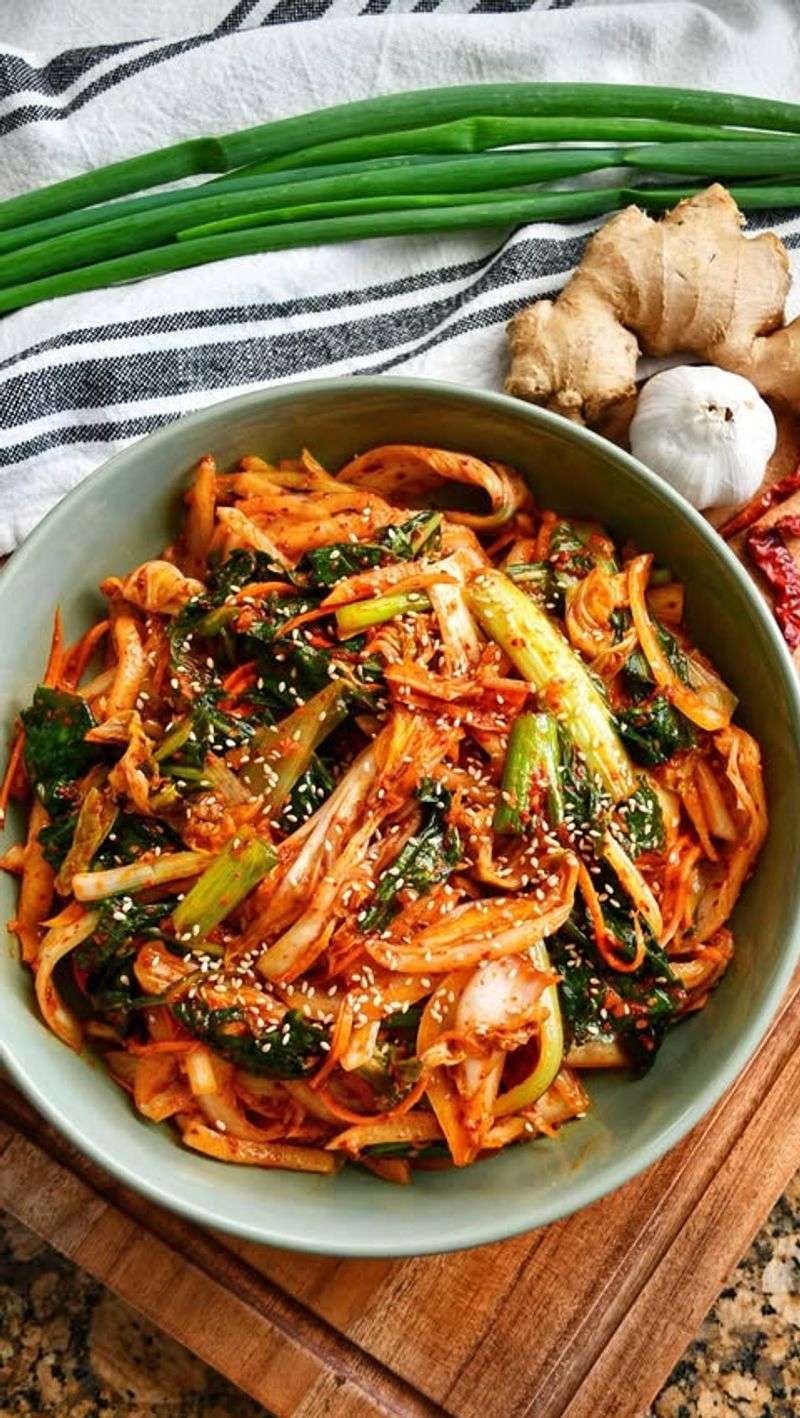
Kimchi is a traditional Korean dish made from fermented vegetables, typically cabbage and radishes. It’s rich in probiotics, promoting gut health and aiding digestion. Kimchi is also high in vitamins A and C, as well as antioxidants. Its spicy, tangy flavor makes it a delicious side dish or ingredient in various recipes. Incorporating kimchi into your diet can enhance your meals with its unique taste and health benefits. Its probiotic content supports a healthy digestive system.
